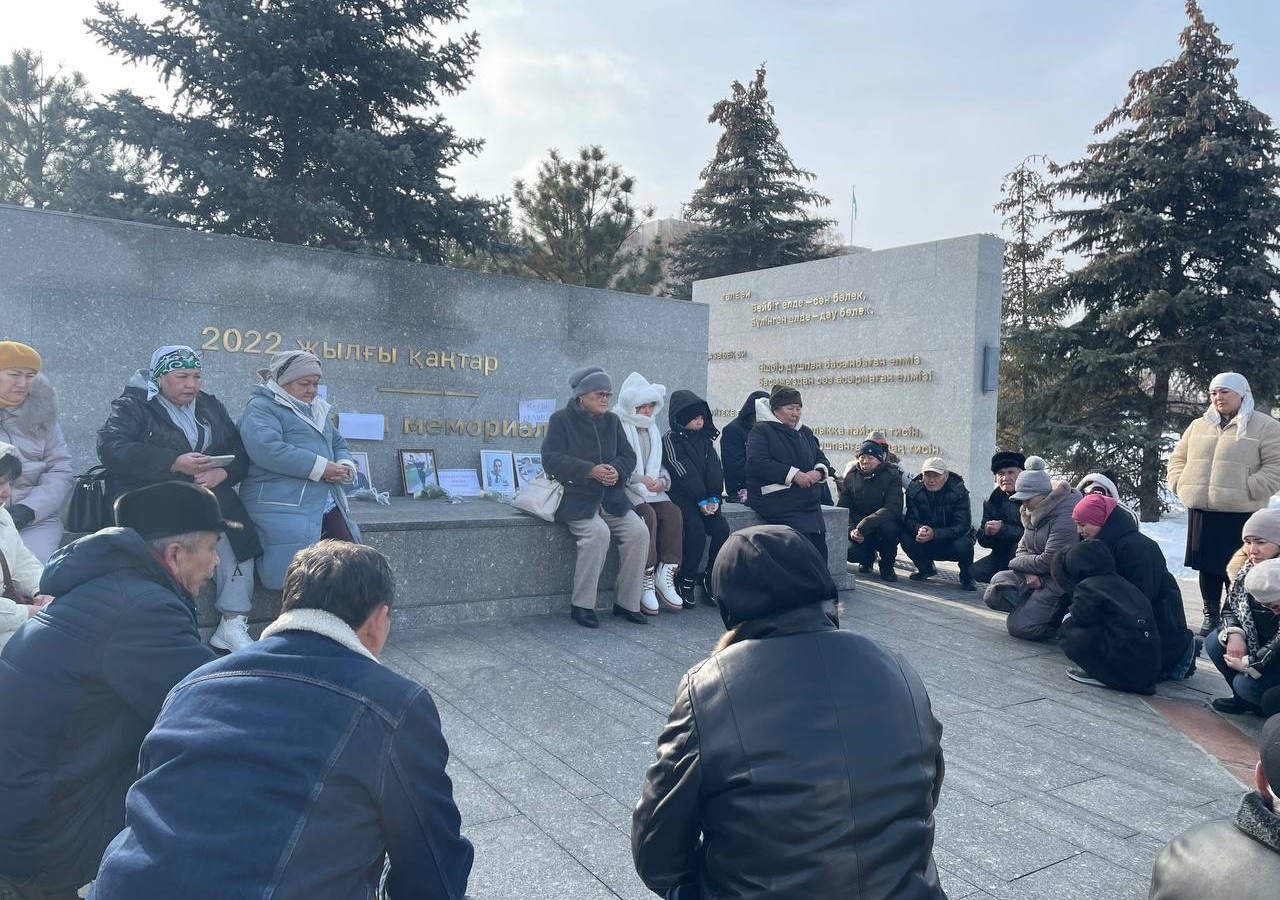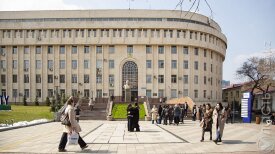Dozens of people gathered in Almaty on January 5 to commemorate the third anniversary of Qandy Qantar (Kazakh for ‘Bloody January’). In January 2022, protests over increased fuel prices in the west of the country spread out to major cities as people lamented their socio-economic conditions. The protests were violently quashed, resulting in at least 238 killed.
The information about the health and personal lives of former presidents is now a state secret, according to amendments to education saving systems and information regulation signed by President Kassym-Jomart Tokayev on January 10. The amendments were added after the first readings of the bundle of legislative changes in the lower chamber of Parliament.
Japan’s ministry of foreign affairs reported on January 10 that the country imposed sanctions on a number of individuals and legal entities from Russia, China, the UAE, Kazakhstan, Kyrgyzstan, and other countries. A joint investigation by Vlast, IStories, OCCRP, and Der Spiegel, revealed that the company Da Group 22, featuring among the sanctioned entities, was involved in a scheme to supply microchips from Germany to Russia. Last year, the European Union put Da Group 22 in its sanctions list.
State-owned Kazmunaigas will take part in a tender to buy an oil refinery in Burgas, Bulgaria, the company said on January 8. Russia’s Lukoil, which owns the refinery, invited Kazmunaigas to participate in the tender. Burgas hosts the largest refinery in southeastern Europe. Kazmunaigas already owns a majority stake in two oil refineries in Romania. Commodity trader Vitol is reportedly working with Kazmunaigas to finance the deal at Burgas.
A court in Astana ordered and obtained the payment of a 3.5 billion tenge ($6.7 million) environmental fine against the consortium in charge of the Kashagan offshore oil field, the press service reported on January 10. The North Caspian Operating Consortium was accused of flaring gas at the field. NCOC has been under investigation for several alleged environmental violations, with one claim amounting to 2.3 trillion tenge ($4.4 billion). Environmental fines have in the past been used as political and economic tools by the government.
Prime Minister Olzhas Bektenov told the Senate on January 8 that the General Prosecutor’s Office will investigate Kazzinc, which operates in the heavy industry in eastern Kazakhstan, for environmental violations. During the last week of November 2024, air pollution skyrocketed in Oskemen and the surrounding area, possibly due to industrial pollution. Commodity trader Glencore owns a 70% stake in Kazzinc.
The ministry of energy said the country plans to produce 96.2 million tons of oil in 2025, one million tons less than previously planned. Kazakhstan produced 87.8 million tons last year, 2.5% below the plan. The goal to increase oil production has been hindered by both repair work at major projects and promises to OPEC+ to keep output down.
The Financial Monitoring Agency said on January 9 that around 6,200 “drop cards” were used to launder more than 24 billion tenge ($45.5 million) last year. Drop cards are issued to people acting as frontmen, who launder money from drug trafficking, cyber fraud, and illegal gambling. The Agency said that most of the cardholders were non-residents.
Yerlan Sarsenbayev, a former supreme court justice, was appointed minister of justice on January 9. His predecessor, Azamat Yeskarayev, was fired on the same day, just two years after being handpicked.
The ministry of labor marginally reduced the available quota of foreign workers for 2025. Last year, the maximum available quota was calculated as 0.23% of the workforce, while the bar is now set at 0.2%. As a result, around 22,000 work permits could be issued to foreigners this year.
Dozens of bus drivers went on strike on January 8 in the northwestern city of Uralsk over wage arrears and salary cuts. The workers claim that the company owes them around 60 million tenge ($114,000).
The Statistics Committee said on January 5 that inflation stood at 8.6% last year, down from 9.8% in 2023. Food and beverages, alongside housing and clothing, made up the largest contributors of price increases last year.
The tenge currency weakened against the US dollar by 2.5% in December, despite the Central Bank’s interventions in the currency market. The regulator said on January 5 that it poured $300 million in December to stabilize the currency.
Поддержите журналистику, которой доверяют.








